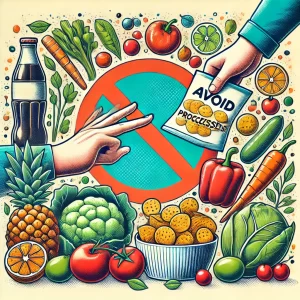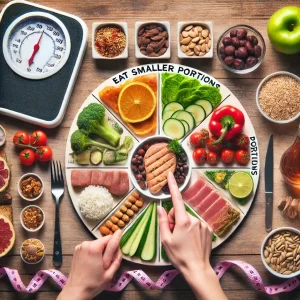Do’s and Don’ts of the Soup Diet: How to Lose Weight with Low-Calorie Soups
Introduction
The Soup Diet is designed to help you lose weight quickly by focusing on nutrient-dense, low-calorie soups. To achieve the best results, it’s important to follow the right guidelines and avoid common mistakes. This list of essential do’s and don’ts will help you stay on track, choose the right soups,  and maximize your weight loss success.
and maximize your weight loss success.
Do’s of the Soup Diet
1. Do Choose Broth-Based Soups
Broth-based soups are low in calories and provide the perfect base for adding vegetables and lean proteins. Opt for chicken, beef, or vegetable broth to create satisfying and nutritious soups without adding unnecessary calories.
2. Do Add Plenty of Vegetables
Vegetables are high in fiber and low in calories, making them a key component of the Soup Diet. Add a variety of non-starchy vegetables like spinach, carrots, celery, and zucchini to your soups for added nutrients and bulk.
3. Do Include Lean Proteins
Protein helps keep you full and supports muscle maintenance while you lose weight. Add lean proteins like chicken, turkey, fish, or tofu to your soups to create balanced, nutrient-dense meals.
4. Do Experiment with Spices and Herbs
To add flavor without extra calories, experiment with a variety of spices and herbs. Garlic, ginger, basil, thyme, and cilantro can enhance the taste of your soups and keep your meals interesting.
5. Do Drink Plenty of Water
In addition to the liquids in your soups, make sure to stay hydrated by drinking water throughout the day. Proper hydration supports digestion, metabolism, and overall health, which can enhance your weight loss efforts.
Don’ts of the Soup Diet
1. Don’t Eat Creamy or High-Fat Soups
Creamy soups made with heavy cream, butter, or cheese are high in calories and fat, which can hinder your weight loss progress. Avoid creamy soups and stick to broth-based options to keep your calorie intake low.
2. Don’t Rely Solely on Processed Canned Soups
Many canned soups contain high amounts of sodium, preservatives, and added sugars, which can be detrimental to your health and weight loss goals. Whenever possible, make your own soups at home using fresh, whole ingredients.
3. Don’t Skip Lean Proteins
While vegetable soups are nutritious, they may not provide enough protein to keep you full and satisfied. Make sure to include lean proteins like chicken, turkey, or beans in your soups to support muscle maintenance and promote fullness.
4. Don’t Overuse Salt
Excessive salt can lead to water retention and bloating, which can mask your weight loss results. Use herbs, spices, and natural seasonings to add flavor to your soups instead of relying on salt.
5. Don’t Forget to Transition Back to Solid Foods
The Soup Diet is intended as a short-term weight loss solution, typically lasting  5 to 7 days. After completing the diet, gradually reintroduce solid foods into your meal plan while maintaining healthy eating habits to avoid gaining back the weight.
5 to 7 days. After completing the diet, gradually reintroduce solid foods into your meal plan while maintaining healthy eating habits to avoid gaining back the weight.
Conclusion
The Soup Diet is an effective way to lose weight quickly by focusing on low-calorie, nutrient-dense soups that promote fullness and reduce overall calorie intake. By following these essential do’s and don’ts, you can optimize your food choices, stay on track with your weight loss goals, and enjoy the benefits of a broth-based diet. Focus on broth-based soups, include plenty of vegetables and lean proteins, and avoid creamy, high-fat soups to maximize your results on the Soup Diet.